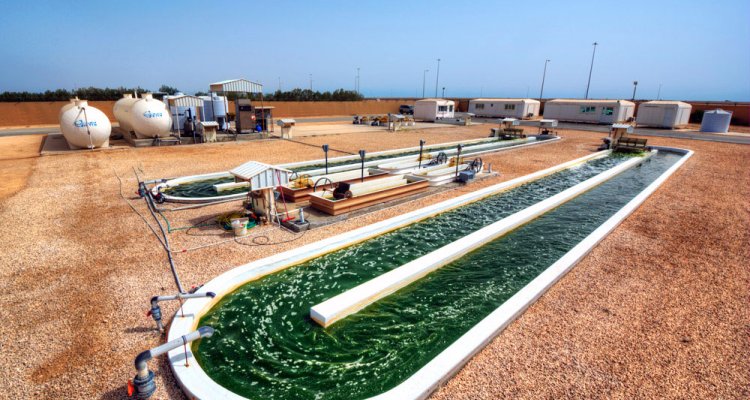
Project
Enhancing Algae-based CO2 Capture and Sequestration for Large Scale Application in Qatar
CO2 supply to microalgae cultures can be challenging, especially in large scale cultivation. This project focusses on improving CO2 transfer and CO2 uptake efficiencies by using alternative inorganic carbon sources. The project is being performed at Qatar University, and uses novel strains which have been isolated from Qatar’s desert environment.
Background
Increasing atmospheric CO2 levels is a major global issue, and algal CO2 capture could be a significant player in potential reduction strategies. Especially in Qatar, the prospect of using microalgae for CO2 abatement is promising: high solar irradiance, large areas of non-arable land, and large amounts of CO2 emissions make it an ideal place for algae cultivation. Supplying CO2 to algae cultures, especially at large scale, is challenging. In order to enhance algal CO2 capture, strategies need to developed which can improve the CO2 transfer rate to the culture and decrease potential carbon limitation to the algae.
Project aim
The aim of this PhD project is to enhance algal CO2 capture through means of carbonate intermediates, which could be used as an alternative inorganic carbon source to direct CO2 injection.
High-throughput screening of various Qatari algae strains will be followed by testing of the process on a small scale (1L). Control systems will be modelled and implemented, and if successful can be tested at large scale as well. The project is performed in Qatar, and is a joint project between Qatar University (QU) and WUR. QU has a large culture collection, with local strains, and an outdoor research facility which allow for testing under harsh desert climate conditions at pilot scale.
Thesis project
There are different topics available for BSc or MSc thesis within the project! If you are interested, please feel free to contact me!